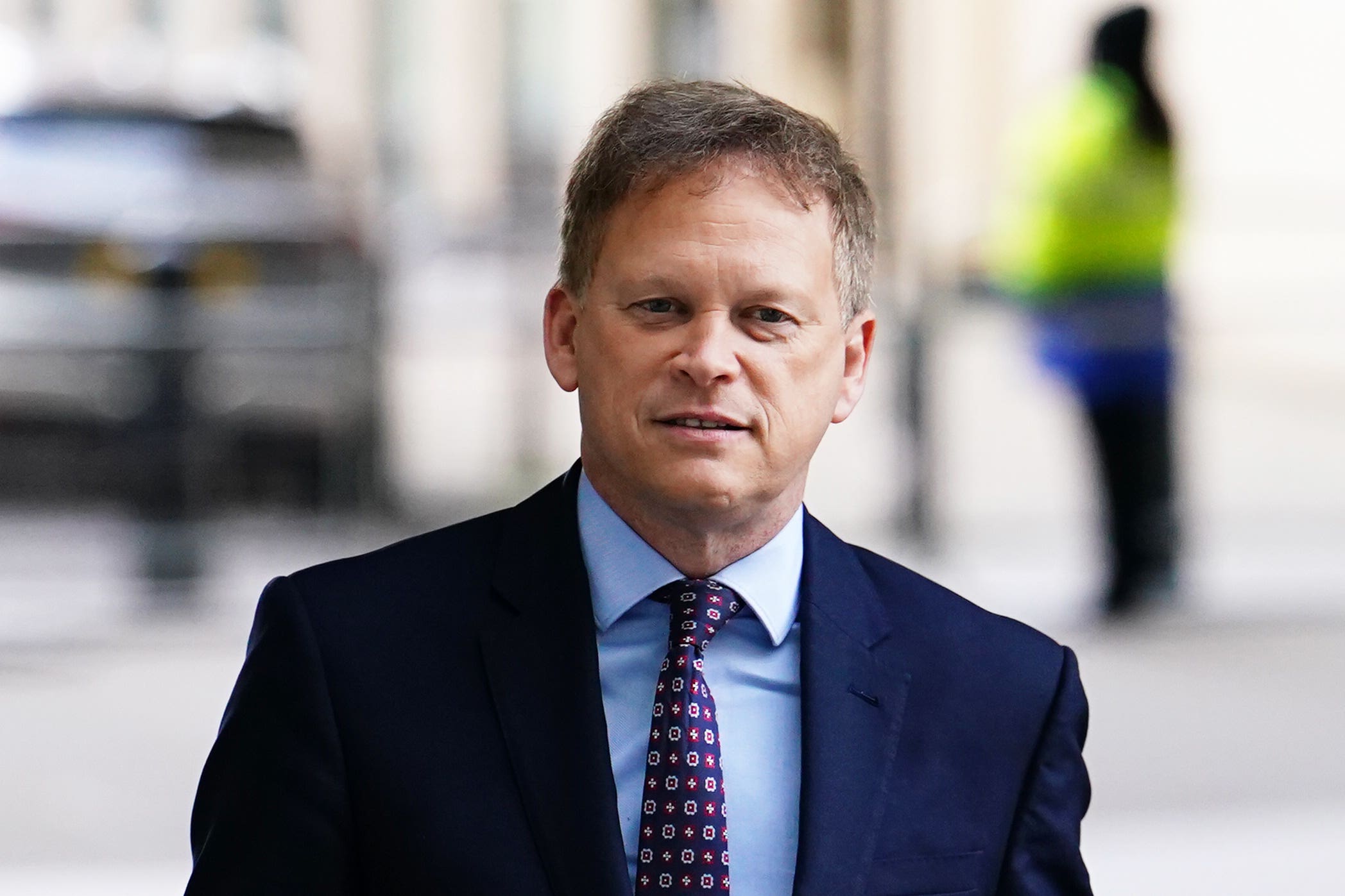Network Rail boss suggests Grant Shapps ‘galvanised’ workers to strike
Andrew Haines said negotiations with trade unions have been conducted in a ‘measured tone’ since Mark Harper became Transport Secretary.

Your support helps us to tell the story
From reproductive rights to climate change to Big Tech, The Independent is on the ground when the story is developing. Whether it's investigating the financials of Elon Musk's pro-Trump PAC or producing our latest documentary, 'The A Word', which shines a light on the American women fighting for reproductive rights, we know how important it is to parse out the facts from the messaging.
At such a critical moment in US history, we need reporters on the ground. Your donation allows us to keep sending journalists to speak to both sides of the story.
The Independent is trusted by Americans across the entire political spectrum. And unlike many other quality news outlets, we choose not to lock Americans out of our reporting and analysis with paywalls. We believe quality journalism should be available to everyone, paid for by those who can afford it.
Your support makes all the difference.Grant Shapps “galvanised” rail workers into continuing strike action when he was transport secretary through “noisy political rhetoric”, the boss of Network Rail has suggested.
Andrew Haines said negotiations with trade unions have been conducted in a “measured tone” since Mark Harper took on the role in October last year.
Widespread strikes over jobs, pay and conditions began in June 2022, when Mr Shapps was transport secretary.
They have taken some of the more robust rhetoric out
Comments he made include accusing the Rail, Maritime and Transport (RMT) union of a “total lie” over claims that he disrupted negotiations, and declaring that he would limit the ability of “these very militant, extreme-Left unions” to bring services to a standstill.
There have been repeated walkouts by thousands of workers at Network Rail and train operating companies.
Asked whether Mr Harper and his rail minister, Huw Merriman, have “changed the narrative with the unions”, Mr Haines said: “They have taken some of the more robust rhetoric out and said ‘We’re prepared to talk, we’re prepared to meet’.
“The conversations are equally direct and blunt but they’re done in a measured tone that isn’t confrontational.
“The underlying realities haven’t changed but what that’s allowed us to do is avoid the distraction.
“It’s a harsh reality that, however well-intentioned, noisy political rhetoric, if anything it galvanised the workforce against settling.”
This approach created a “them and us approach” and “demonised” rail workers, Mr Haines said.
He went on: “I’ve seen a very material change in the sentiment among Network Rail colleagues because the heat’s been taken out.
“However well-intentioned, bashing people up in the newspapers doesn’t work if you want to get people to vote for something.”
He made the comments during a question and answer session after Mr Harper gave the rail industry’s annual George Bradshaw address in central London on Tuesday night.
Steve Montgomery, who chairs the Rail Delivery Group (RDG), which is negotiating with the unions in their dispute with train operators, said Mr Harper has “de-personalised” negotiations and made them “more sensible” with “less conflict in the room”.
Mr Harper told the audience of rail leaders that the RDG’s insistence that its most recent offer to the RMT will not be improved is accurate.
The Cabinet minister said: “Best and final means what it says.”
He stressed the importance of reforms such as train companies not relying on staff doing overtime shifts to run Sunday services.
Mr Harper added that union members need “a growing rail industry that has more passengers and more revenue, that’s in their interests”.
Mr Shapps was appointed Energy Security and Net Zero Secretary on Tuesday.